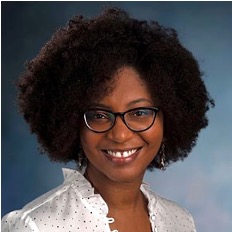From BetterHelp to Talkspace, the number of mental health apps currently on the market can overwhelm anyone. Yet, out of all the mental health apps you can think of, how many advertise culturally supportive therapists? You’re not alone if you can’t think of one, or better yet, you’ve never even heard of culturally supportive therapists. In short, culturally supportive therapists respect differences in a client’s culture. If this sounds too simple, you’re right—culturally supportive therapy is hard work. A culturally supportive therapist acknowledges a client’s cultural practices and attitudes, specific religious and spiritual beliefs, distinct traditions for communications with their families, and the possible reluctance to ask for help outside of their community.
If you’re interested in a culturally supportive therapist, you’ll need to know what to look for.
Look for a therapist that practices cultural humility, an orientation to mental health care that is based on the therapist being self-reflective about their own biases, appreciating the client’s expertise about their own experience, being open to sharing power with the client, and continually learning from the client (Lekas et al., 2020). Cultural humility can strengthen relationships between therapists and clients by acknowledging differences within culture and race. These topics carry a lot of weight for many folks because of the historical marginalization of many diverse groups, so it’s important that your therapist gets comfortable talking about this upfront.
Culturally supportive care considers individuals from diverse backgrounds that may face barriers to participating in services. You’ll need a therapist that considers this. Financial costs such as copayments for services, loss of employment, transportation, and childcare drain people in many ways, but a culturally supportive therapist will work with you through several payment plans such as sliding-scale fee for therapy, which is when the therapist bases the cost of your therapy on your income and number of dependents. Finally, look for a therapist who recognizes their own limitations while educating themselves on their client’s cultural needs.
Some websites provide the option of looking for a therapist in your area who describes themselves as culturally supportive. For example, Psychology Today has a “Find a Therapist” link that allows you to search for different types of therapy, and one option is culturally sensitive. This type of website can help you narrow down your choices, but you’ll feel more confident in the therapist’s cultural sensitivity once you’ve had a session or two. If you decide to try out a therapist and they ask questions such as, “Who do you normally turn to for support?”; “What information can be shared?”; or “Are you open to referrals that can help you?” then you may be on the right track to working with a culturally supportive therapist. But remember that each therapist is different, and you might not feel a connection with each one. If you start with a therapist and feel like they are not providing the cultural sensitivity you desire, don’t give up on therapy. Try someone else, knowing that it’s worth the effort to get the help you need for your mental health.
Reference
Lekas H-M, Pahl K, Fuller Lewis C. (2020). Rethinking Cultural Competence: Shifting to Cultural Humility. Health Services Insights, 13, 1-4. doi:10.1177/1178632920970580
About the Authors



